Search
Remove Ads
Advertisement
Summary 
Loading AI-generated summary based on World History Encyclopedia articles ...
Search Results
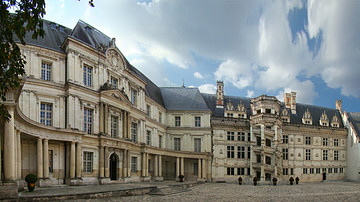
Image
Château de Blois
Château de Blois, Loir-et-Cher, France. A unique example of the development of French architecture from the 13th to the 17th centuries, the Château de Blois has been a listed historic monument since 1845. The château has been associated with...
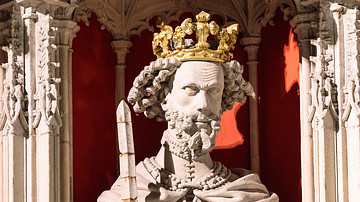
Definition
King Stephen of England
King Stephen of England, often called Stephen of Blois, ruled from 1135 to 1154 CE. His predecessor Henry I of England (r. 1100-1135 CE) had left no male heir and his nominated successor, his daughter Empress Matilda, was not to the liking...
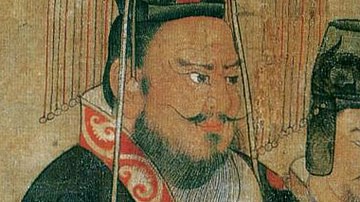
Definition
Chinese Emperor
The emperors of ancient China had tremendous power and responsibility. Called the 'Son of Heaven', he (and once she) was given a divine right to rule over all people but was expected to promote their best interest and not his own. An absolute...
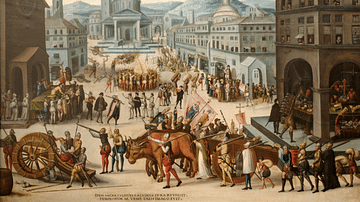
Definition
French Wars of Religion
The French Wars of Religion (1562-1598) were a series of eight conflicts between Protestant and Catholic factions in France lasting 36 years and concluding with the Protestant King Henry IV of France (r. 1589-1610) converting to Catholicism...
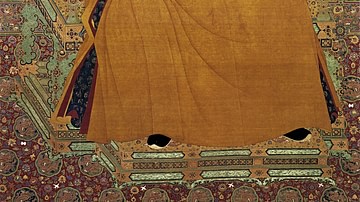
Definition
Yongle Emperor
The Yongle Emperor (aka Chengzu or Yung Lo, r. 1403-1424 CE) was the third ruler of the Chinese Ming Dynasty (1368-1644 CE). Inheriting a stable state thanks to the work of his father, the Hongwu Emperor (r. 1368-1398 CE), Yongle made lasting...
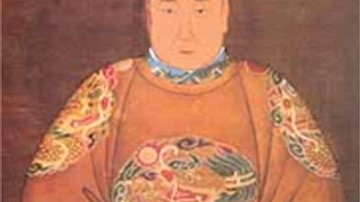
Definition
Jianwen Emperor
The Jianwen Emperor (r. 1398-1402 CE) was the second ruler of the Chinese Ming dynasty (1368-1644 CE). Following a civil war and Jianwen's mysterious disappearance, his uncle took over the throne and ruled as the Yongle Emperor (r. 1403-1424...
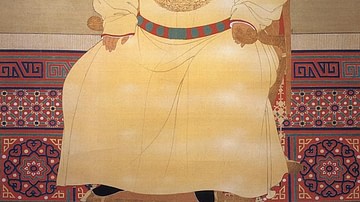
Definition
Hongwu Emperor
The Hongwu Emperor (r. 1368-1398 CE) was the founder of the Ming dynasty (1368-1644 CE) which took over from the Mongol Yuan dynasty (1276-1368 CE) as the rulers of China. Born a peasant with the name Zhu Yuanzhang, the future emperor led...
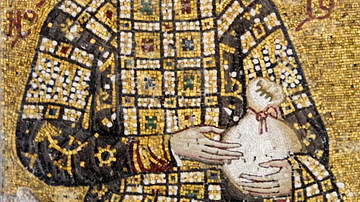
Definition
Byzantine Emperor
The Byzantine Emperor ruled as an absolute monarch in an institution which lasted from the 4th to 15th century CE. Aided by ministers, high-ranking nobility, and key church figures, the emperor (and sometimes empress) was commander-in-chief...
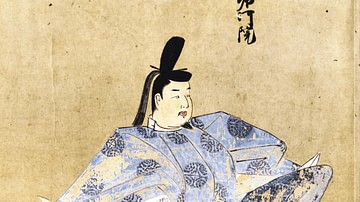
Definition
Emperor of Japan
The emperor of Japan is a position as the head of state which traditionally dates back to the 7th century BCE and the legendary figure of Emperor Jimmu (r. 660-585 BCE). Emperors came to be known as the Tenno or 'heavenly sovereign' in reference...
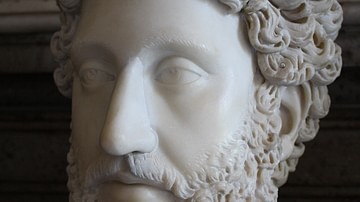
Definition
Roman Emperor
Roman emperors ruled the Roman Empire starting with Augustus in 27 BCE and continuing in the West until the late 5th century CE and in the Eastern Roman Empire up to the mid-15th century CE. The emperors took titles such as Caesar and Imperator...